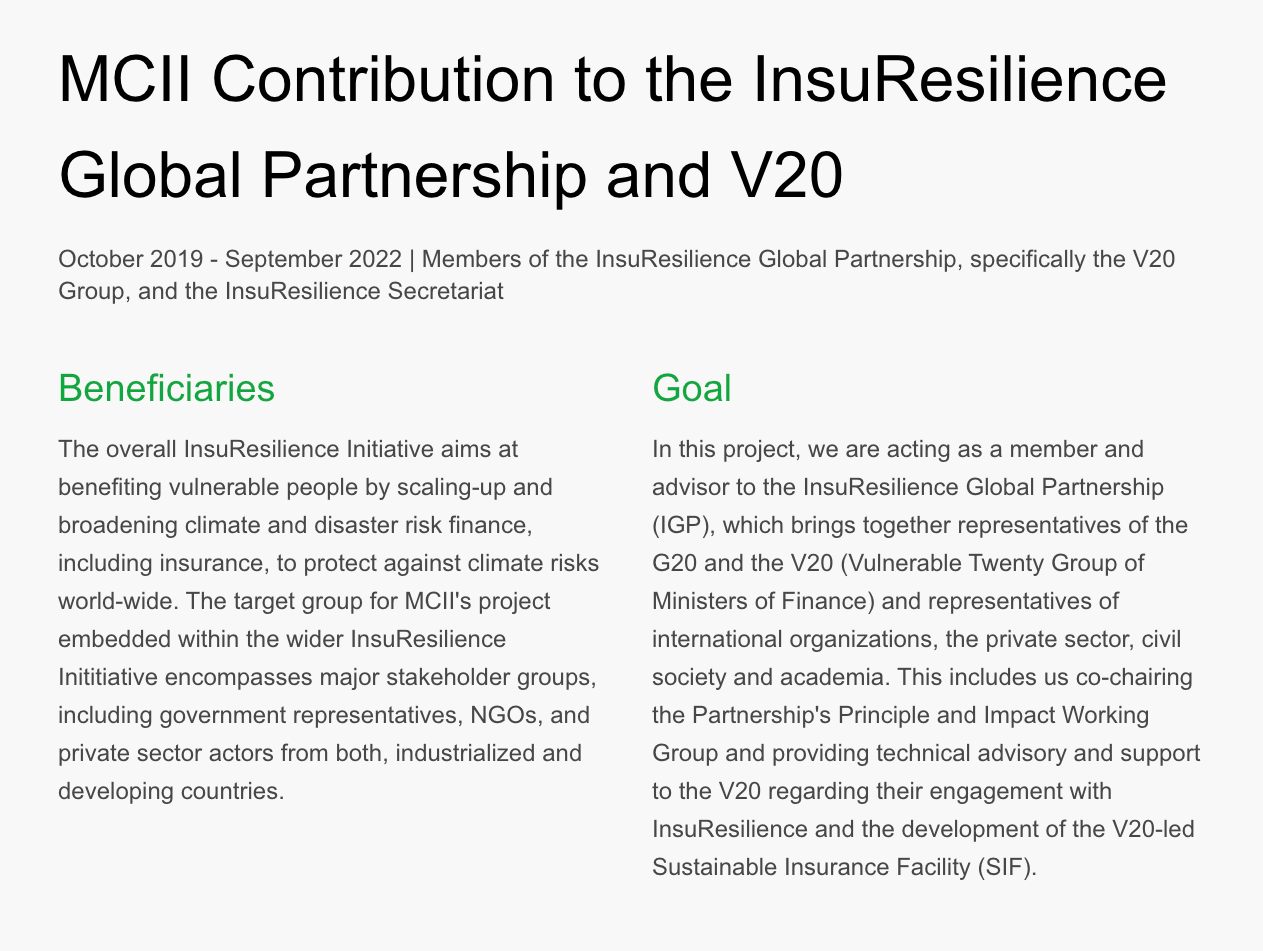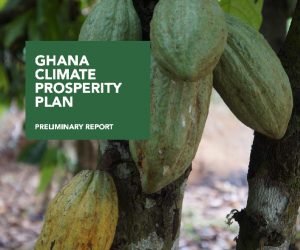MCII Contribution to the InsuResilience Global Partnership and V20
Beneficiaries
Goal
Project Overview
There is increasing recognition among the international community of the need for urgent and concrete action in mitigating climate change, and addressing its impacts by effectively supporting particularly vulnerable countries’ own efforts to manage climate change induced disaster risk. Well-designed climate risk insurance – when applied in conjunction with other disaster risk management measures and strategies – can protect people against climate shocks by acting as a safety net and buffer shortly after an extreme weather event. In 2015, we saw a major shift in political narratives about how climate change related risks are addressed moving away from an attitude of coping with impacts (ex-post) to that of effectively managing risks before they occur (ex-ante).
By initiating a Climate Risk Insurance Initiative (InsuResilience) in 2015, the G7 countries acknowledged the central role insurance plays in a comprehensive climate risk management approach. Building on the 2015 InsuResilience Initiative, G20 and V20 countries then moved to launch the InsuResilience Global Partnership in 2017 and to promote the development of a broad menu of climate and disaster risk finance instruments, including insurance (CDRFI). In bringing together representatives of the G20 and the V20, international organizations, the private sector, civil society and academia , the InsuResilience Global Partnership aims to aspire to delivering results in six areas: By 2025, (1) increase the number of people protected by risk financing and insurance arrangements to 500 million, (2) ensure vulnerable countries have comprehensive disaster risk financing strategies in place and (3) adopt CDRFI integrated with comprehensive risk management systems, while (4) increasing the cost-effectiveness of risk finance and insurance arrangements, (5) aligning increased disaster resilience with human development objectives and (6) building robust evidence for effective and cost-efficient climate and disaster risk insurance solutions.
Under the overall guidance of the German Federal Ministry for Development and Economic Cooperation (BMZ) and in cooperation with the Deutsche Gesellschaft für Internationale Zusammenarbeit (GIZ), we are contributing to InsuResilience by providing strategic and technical advice to the members of the Partnership, specifically the V20 Group as well as the InsuResilience Secretariat, facilitating dialogue among stakeholders, including private sector, civil society and partner countries, and undertaking research on the nexus between resilience, insurance and risk reduction.
Amongst others, this includes us co-chairing the Partnership’s Principles and Impact Working Group and providing technical advisory and support to the V20 regarding their engagement with InsuResilience and the development of the V20-led Sustainable Insurance Facility (SIF). The aim of our work is the design of needs-based advice to support vulnerable countries in their approach to climate and disaster risk financing, including insurance, and their leadership on related policy issues in the international arena.





